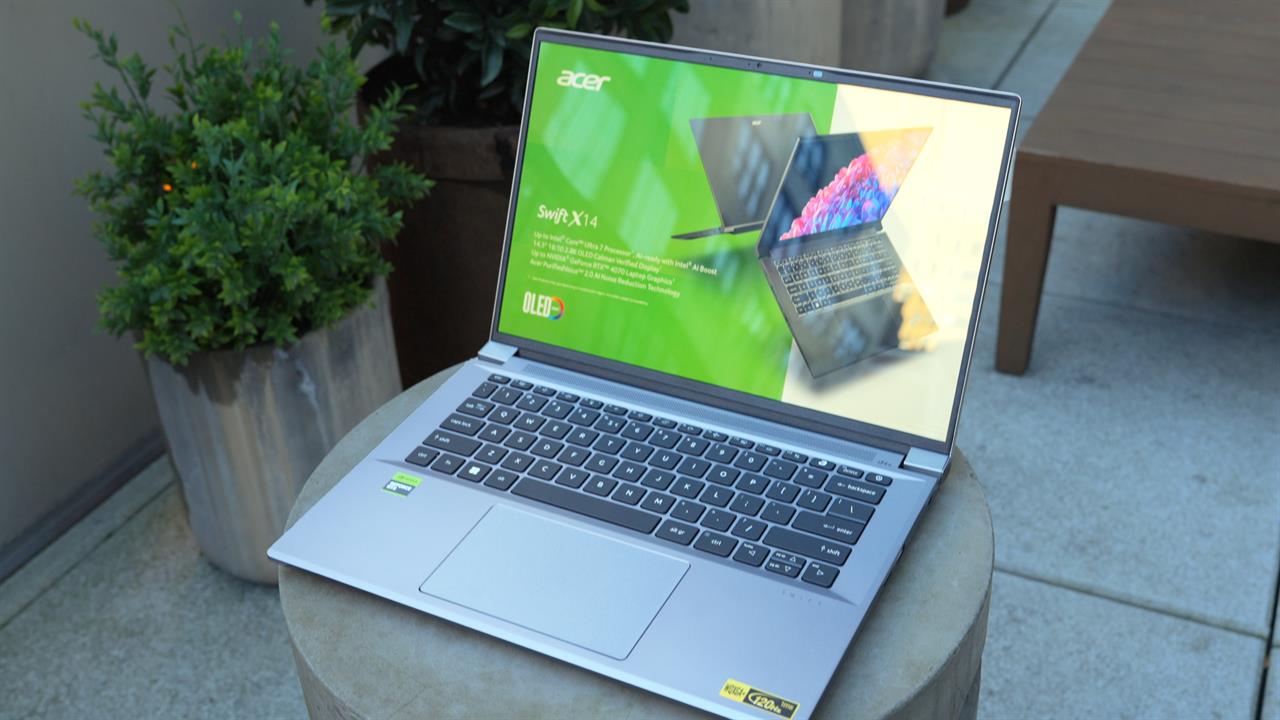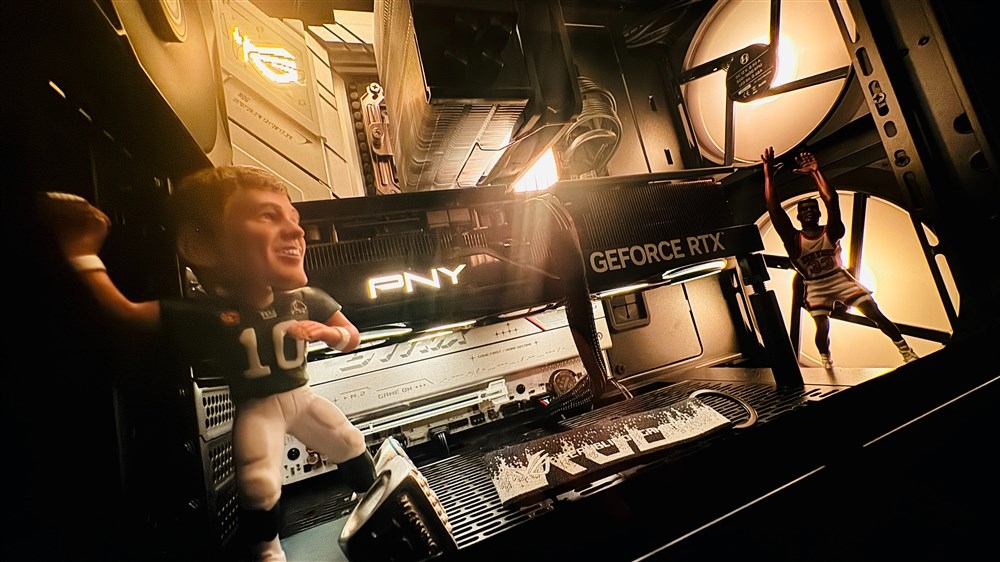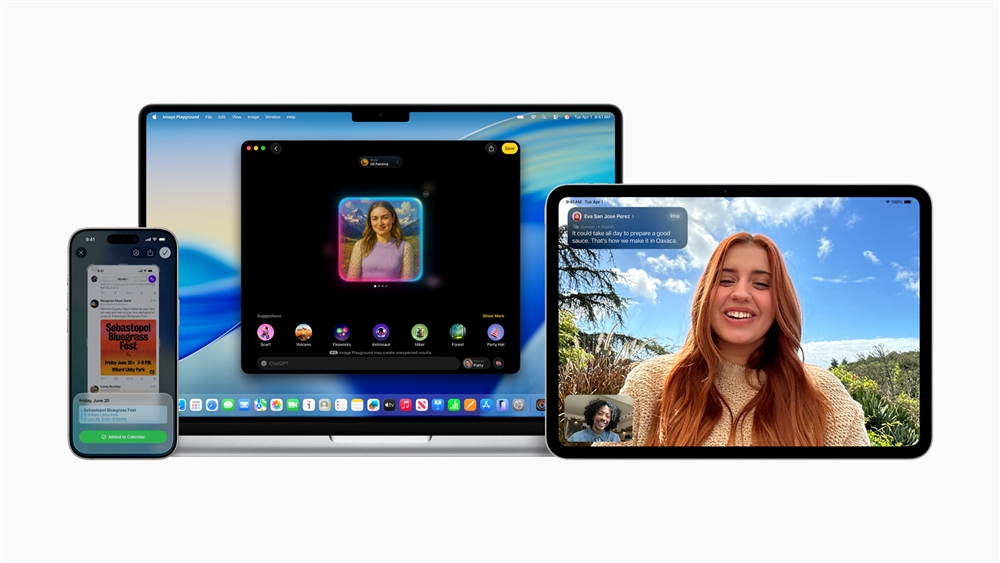CES 2024: The Year of AI Everything
The future will be AI-driven, and CES 2024 has given us an early glimpse into that transformation.News
Copilot Takes Off
If there's one thing that symbolizes this major shift, it's the first major change to the basic Windows keyboard in decades. New keyboards will feature a dedicated Microsoft Copilot key, which will pull up a Windows-based AI assistant that can do everything from booking restaurant reservations to building PowerPoint decks.
But Copilot is not just about automating mundane tasks; it's about enhancing productivity and creativity. We've already seen standalone AI bots that can create images and write text, but now it'll be much more integrated into Microsoft's PC ecosystem -- and your data -- thanks to AI's ability to understand context and intent.
Of course, Copilot will work better with local AI processing on your device, hence the big emphasis at CES 2024 on new processors from Intel and AMD with built-in NPUs (neural processing units) that can handle the heavy lift of AI work, leaving your CPU and GPU free to do other tasks. If buying a new laptop or desktop in 2024, choosing one with built-in AI hardware will be something to strongly consider.
Intel, AMD, and Nvidia: Powering the AI Shift
Intel has been a frontrunner in integrating AI into its chipsets. At CES 2024 (and just before in December, 2023) the company showcased its latest Core Ultra processors, specifically designed to optimize AI processing. This move is significant as it makes AI tools more accessible and efficient by putting them right on your local hardware, rather than in the cloud.
AMD has followed suit, talking about processors with enhanced AI capabilities. The Ryzen 7 8700G marks a significant development in desktop CPU technology, featuring the first-ever NPU on a desktop CPU, Ryzen AI, aimed at improving efficiency and productivity in AI-assisted tasks.
NVIDIA continues to impress with its AI-centric advancements. The company showcased the possibilities of AI in gaming with its Avatar Cloud Engine, or ACE. Nvidia also announced a partnership with Getty Images to deliver Generative AI by iStock, a tool for creating digital assets trained on Getty Images stock photos.
 [Photo: Dan Ackerman]
[Photo: Dan Ackerman]
Consumer Tech Giants Embracing AI
Tech brands like Samsung and Amazon are capitalizing on this trend by embedding AI in their latest devices.
Samsung's latest big-screen TVs will have new AI features, including Active Voice Amplifier Pro for clearer audio and an AI upscaling feature to enhance sharpness and reduce visible noise on larger screens -- that's especially useful for watching older shows and movies that weren't shot in HD, much less 4K.
Meanwhile, Amazon is building a voice assistant LLM for BMW cars, which could replace flipping through the user manual to figure out how to change settings. And that's on top of the slew of new or updated robots, baby strollers, lamps and even smart toilets, all which now claim some level of AI integration.
What AI Means for You
The implications of 2024 being "The Year of AI" are profound. With AI becoming more localized and personalized, we are witnessing a huge shift in how AI works, just a little over a year after most of us got our first introduction to cloud-based bots like chatGPT and DALL-E. The future is not just about consumer technology getting faster or more efficient; it’s about it becoming smarter, more aware, and ultimately more useful in our daily lives.
From processors that bring AI to our fingertips to smart home appliances that learn and adapt to our preferences, the future will be AI-driven, and CES 2024 has given us an early glimpse into that transformation.
- Everything We've Seen at CES 2024
- See new laptops at Micro Center
- See new desktops at Micro Center
- Start building a new PC with Micro Center's PC builder
Micro Center Editor-in-Chief Dan Ackerman is a veteran tech reporter and has served as Editor-in-Chief of Gizmodo and Editorial Director at CNET. He's been testing and reviewing laptops and other consumer tech for almost 20 years and is the author of The Tetris Effect, a Cold War history of the world's most influential video game. Contact Dan at dackerman@microcenter.com.










